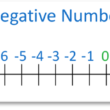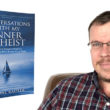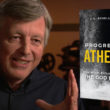Traversing an Infinite?
by Jimmy Akin
Filed under The Existence of God, Uncategorized

God created the universe a finite time ago, but there’s a question of whether we can prove this by reason alone. Defenders of the Kalaam cosmological argument often claim that the universe cannot have an infinite history because “traversing an infinite” is impossible. In his book Reasonable Faith (pp. 120-124), William Lane Craig puts the argument this way 1. The series of events in time is a collection formed by adding one member after another2.... Read More
Did God Command Genocide in the Old Testament?
by Dr. Randal Rauser
Filed under Uncategorized

The heart and foundation of Christianity is belief in a God who is worthy of worship: in the words of Anselm, that being than which none greater can be conceived. And so, when the Bible depicts God as acting in a manner that appears to be less-than-perfect, this creates a challenge for the Christian reader. There is perhaps no more glaring an example of this problem than God’s command to the Israelites in Deuteronomy 20:16-17: “16 However, in the cities of the nations the Lord... Read More
Is There a Link Between Atheism and Skepticism?
by Dr. Randal Rauser
Filed under Uncategorized

There is a popular notion that doubt and skepticism are specially linked to atheism. But is that borne out by the evidence or is it just a bit of branding based on a limited selection of doubt? It is also very common to find atheism being linked to skepticism. There is a popular narrative that traces the origins of skepticism back to ancient Greece when philosophers first began to doubt the existence of the gods as they had been popularly understood. One finds a reflection of... Read More
How Thomists View the Modern Sciences
by Thomas M. Cothran
Filed under Uncategorized

Debates concerning the existence of God typically run aground on prior unresolved metaphysical questions. Any debate with a Thomist about the existence of God turns into an exposition of a number of metaphysical notions – potentiality, actuality, matter, form, essence, existence, motion, cause, and effect. Skeptics tend to quickly recognize that they are not only being asked to accept the existence of God, but an entire metaphysics. Often enough, the effect is not only a continuing... Read More
The Flatlander’s Argument Against Miracles
by Joe Heschmeyer
Filed under Uncategorized

In a Pentecost sermon that was later published as the essay “Transposition,” C.S. Lewis posed a serious objection to the gift of “speaking in tongues,” sometimes called glossolalia. But the objection he makes (as we’ll soon see) applies to everything from miracles to love. First, here’s the dilemma Lewis finds: The difficulty I feel is this. On the one hand, glossolalia has remained an intermittent “variety of religious experience” down to the present... Read More
Science as a Religion
by Dr. Logan Paul Gage
Filed under Uncategorized

This essay is drawn from Dr. Logan Gage's new video course, How Science Became a Religion, available at NewPolity.com—and free for a limited time! The first lesson is below: Christians and non-Christians alike tend to value the language of natural science as the most appropriate and authoritative language to speak within the "public square" of liberal nation states. An argument from theology will get you nowhere; an argument from one's personal experience... Read More
How can the God of the Philosophers be the God of Abraham, Isaac, and Jacob?
by Dr. Randal Rauser
Filed under Uncategorized

Doubt and questioning are a part of the Christian faith. In Randal Rauser's new book, Conversations with My Inner Atheist, the Christian theologian and apologist explores his own doubts and questions by way of an internal conversation with his own inner atheist, Mia (i.e., "My Inner Atheist.") This article is a chapter drawn from the book in which Randal and Mia explore the question of how one can identify the God of the philosophers with the God described in the Bible. ... Read More
Why Miracles are Credible to Catholics
by Dr. Dennis Bonnette
Filed under Uncategorized

Unlike many other articles dealing with miracles, this one is not actually expected to change minds about the reality of such phenomena. Rather, it is intended to show why miracles are believed and should be believed by believers as well as why miracles are not believed and likely will not be believed by unbelievers. The focus here is less on the extraordinary events themselves and more on the reasons why some people believe the reports about them, while others do not. The extraordinary... Read More
Religion After God: A Review of “Progressive Atheism”
by Dr. Randal Rauser
Filed under Uncategorized

“Atheism, we’ll say, for all we know may come at the beginning of religion rather than the end.” (173) That is not the kind of quote you’d expect to find in a typical book defending an atheistic perspective. But then again, J.L. Schellenberg did not write a typical atheistic book. Progressive Atheism: How Moral Evolution Changes the God Debate (Bloomsbury, 2019) is a manifesto of innovative and iconoclastic atheist thought in the manner of Ronald Dworkin’s Religion... Read More
Would America Be Better Off without Religion?
by Casey Chalk
Filed under Uncategorized

“Too much religion is bad for a country,” asserts Max Boot in a recent Washington Post op-ed. Boot cites a number of indicators—average GDP per capita, unemployment rates, poverty rates, homicide rates, life expectancy, infant mortality, education, and degree of political liberties—that suggest that “less religious nations are much better off.” Indeed, Australia, Sweden, Belgium, the United Kingdom, and Japan, some of the least religious nations in the world, rank... Read More






